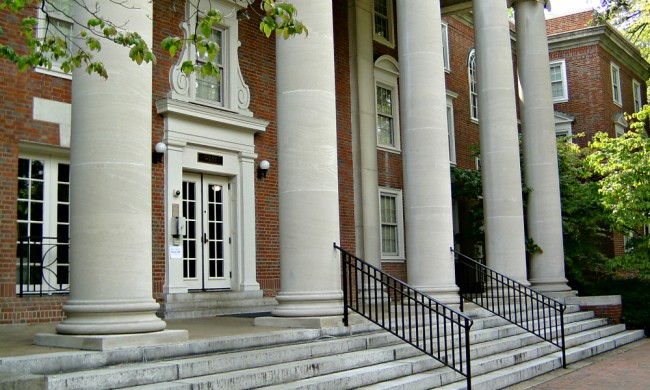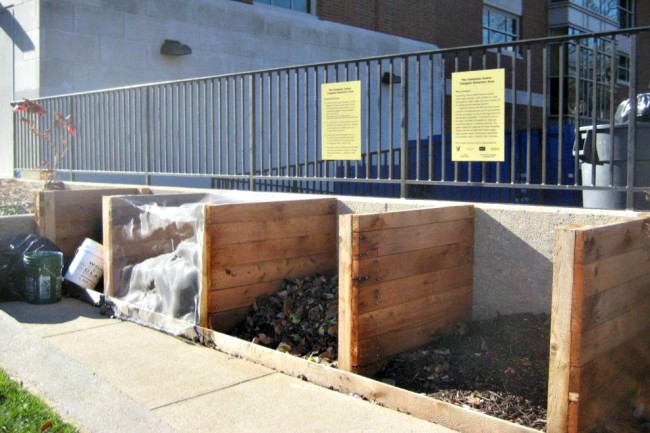Urban Gardening at Vanderbilt
Prof. Robert Barsky writes about undocumented immigrants [link: video of Barsky on Noam Chomsky, Dissent, and Immigrant Rights], and he is deeply passionate about social justice. Most of his work deals with social inequity, but he became interested in environmentalism when he realized that “unless we find a way to maintain the planet, it doesn’t matter who we are, rich or poor.” For the sake of human rights, he says, “We all need to be doing something.”

As the Faculty Head of West House at Vanderbilt University, he has encouraged the approximately 112 first-year students under his purview to take interest in both social justice and the environment. “It is incumbent upon me and the residents to make West House as sustainable as possible. I hope to make students mindful of the effects our actions.”
Of all the issues that form the matrix of environmental sustainability, Barsky has picked food. “If you’re trying to make a difference in people’s attitudes toward the earth, you have to pick your battles. For students, food and gardening are immediate and generally enjoyable.”
To these ends, Barsky serves meals cooked in his own kitchen from organic ingredients. Until the end of 2014, Vanderbilt’s campus did not have easily-accessible glass recycling containers [link: press release about new glass recycling locations], so for the past few years he has kept two large bins for glass recycling, as well as a composter. Vanderbilt still lacks composting facilities (due to city regulations, Vanderbilt cannot have any composting facilities that are larger than “backyard-size” [link: more information about composting at Vanderbilt]) but Barsky says that after eighteen months of collecting compost, he now has a hundred pounds of fertilizer, which he plans to use to plant a vegetable garden at West House this spring.

He has seen students take interest in such pro-environmental actions, but he hasn’t seen many of them apply the principles to other areas of their lives. He hopes that when residents plant the garden in April, it will help the first-year college students feel like they have a stake in both the livelihood in the garden and what it represents: the livelihood of our planet.
When it comes to taking action on environmental issues, urban areas are ripe for reform. That means building mixed-use properties that allow people to work and shop within walking distance of their homes, expanding public transportation systems, making cities more friendly to pedestrians and bikes, and developing sustainable food systems with farmers’ markets and urban gardens.
We are currently seeing all of these strategies implemented in Nashville to varying degrees. For example, Hill Realty built a retail and residential development along 12 South Avenue, and recently broke ground on a project in Hillsboro Village that will be completed this year. The sounds of construction also echo from a site along 21st Avenue South, Aertson Midtown [link: news about this mixed-use development], which will have 350 new apartments (and as all the yuppies know, Nashville desperately needs more apartments). Several independent and governmental agencies are working on designs that would decrease car-dependency in Nashville. Already, Nashville has a bike-share program that gives people access to 200 bikes near downtown for a fee. There are also 26 miles of bike paths [link: brochure regarding the Music City Bikeway] linking the west side of the county to the east through major parks, neighborhood areas, and downtown. To increase the availability of organic food, the city government subsidizes the Nashville Farmers’ Market, which encourages organic and seasonal food choices.
So Barsky’s choice to start a garden at West House is only the start of Vanderbilt’s role in a larger movement. There’s already student interest in urban gardening, as evidence by the VanderBEANS Mayfield. Maybe soon, we will see more composters at other residential halls.